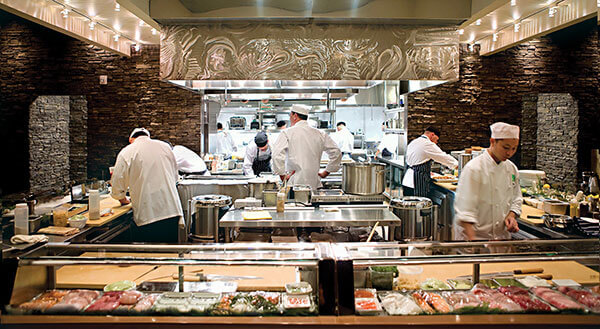Specialty perishables provide an opportunity for retailers to differentiate themselves and help meet the demands of consumers seeking high-quality meal solutions, according to the 2022-2023 edition of SFA’s The State of the Specialty Food Industry report.
Perishables departments can also go a long way in setting the tone for the entire store, with attractive displays and assortments that encourage exploration.
“For specialty retailers, perishables departments that typically populate the front and perimeter of stores represent much of these retailers’ enticing, creative merchandising and alluring execution,” the report concluded.
In addition, specialty perishables are often at the leading edge of innovative trends that may eventually migrate to CPG products and categories.
The report estimates that sales of specialty perishables will reach $34.3 billion in 2022, or about 18 percent of the total specialty food market.
Retail specialty perishable sales were up 19.5 percent in 2020, when consumers shifted spending away from foodservice and into grocery retail, followed by a 6 percent increase in 2021. Sales are expected to grow 7.7 percent this year and 4.8 percent in 2023, when they are projected to reach nearly $36 billion.
The report noted that the COVID-19 pandemic had a fairly large impact on retailers’ approach to perishables merchandising, and some of the changes that retailers implemented could have lasting impact. Many retailers, for example, merchandised more prepackaged perishables items such as salads, deli meats and cheese, and bakery items. The shift toward prepackaged items was initially intended to minimize customer/employee contact and create a more sanitary environment, but the prepackaged trend could have staying power if consumers show a preference for the heightened convenience it offers, the report suggested.
“Consumer habits and attitudes have shifted, and they may wish to avoid buying served-to-order random-weight items at the full-service bakery, deli, and meat counters,” the report said.
Ohio-based Heinen’s, for example, eliminated salad bars at the start of the pandemic and transitioned to prepackaged salads. The retailer has since transitioned to a smaller salad bar — about half the size of its traditional salad bars, according to a Grocery Dive article referenced in the report. Together with the packaged salads, the new salad bars are generating almost as much revenue as the previous, full-sized salad bars, with less labor and less shrink.
Retailers such as Whole Foods continue to feature expansive specialty perishables assortments, including items from local producers and foodservice operators. The report cited a recently opened Whole Foods in San Francisco that features Sourced for Good produce, plus items from more than 32 local farms, including mandarins from Fruitworld, salad greens from Plenty’s San Francisco Farm and organic mushrooms from Far West Fungi.
The store also offers caviar from Tsar Nicoulai Caviar, trout from Two X Sea Trout, air-chilled chicken from Mary’s, lamb from Pozzi Ranch, house-made sausage, and a variety of breads and other baked goods from local bakeries, as well as Whole Foods’ own specialty bakery items.
Future opportunities in specialty perishables could include hot prepared foods, heat-and-eat meals, meal kits, and traditional deli items such as sandwiches, salads and side dishes, as well as breakfast foods, confections and desserts, and hot and cold beverages.
Related: Kroger Panelists: Plant-Based Meat to Mirror Milk Analogs; Walmart Invests in Sustainable Beef.
Photo: Wegmans

